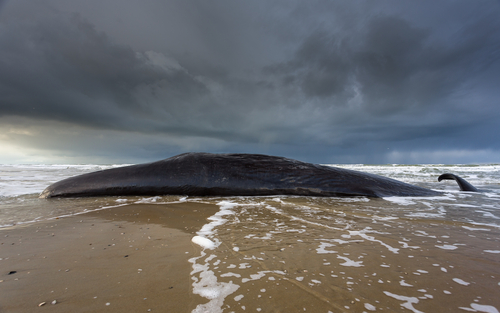
The beluga whale believed to be a former Russian spy, known as "Hvaldimir," has been found dead off the coast of Sweden, marking a tragic end to one of the most enigmatic marine stories of recent years. The whale, which first made headlines in April 2019 when it was discovered near Norway wearing a harness labeled "Equipment of St. Petersburg," has fascinated the world with its mysterious origins and unexplained presence in Scandinavian waters.
Hvaldimir's body was discovered by Swedish authorities on September 1, 2024, near the town of Lysekil on the west coast of Sweden. The whale had been spotted in the area just days before, sparking renewed interest in its journey and fate. Marine experts were called to the scene, where they confirmed the whale's identity based on distinctive markings and other identifying features. The cause of death is still under investigation, though initial assessments suggest that the whale may have succumbed to injuries or stress related to its long and arduous journey.
https://x.com/nexta_tv/status/1830148679451218184
This discovery has brought an end to nearly five years of speculation and intrigue surrounding Hvaldimir, who had been the subject of numerous sightings and theories since its initial appearance. The whale was first discovered in the frigid waters of the Norwegian Arctic, where it approached fishing boats in an unusually friendly manner. The harness it wore, designed to hold a camera or weapon, immediately raised suspicions that the whale had been trained by the Russian military, a claim that has never been fully confirmed or denied by Russian authorities.
Over the years, Hvaldimir became something of a local celebrity in Norway, with marine biologists and volunteers working to monitor its health and behavior. However, the whale's recent sightings in Sweden marked the first time it had been seen so far south, raising concerns about its well-being. Belugas are typically found in Arctic and sub-Arctic waters, and prolonged exposure to warmer temperatures could have contributed to its demise.
https://x.com/yasminalombaert/status/1830576339130163358
The reappearance and subsequent death of Hvaldimir come at a time of heightened tensions between Russia and the West, particularly in light of the ongoing conflict in Ukraine. While there is no direct evidence linking the whale's activities to espionage, its presence in the region has fueled speculation about the use of marine mammals in covert military operations. The Swedish Armed Forces have declined to comment on the whale's death, leaving many questions unanswered.
The mysterious circumstances of Hvaldimir's life and death have also reignited debates over the ethics of using animals for military purposes. Animal rights groups have long condemned such practices, arguing that they subject highly intelligent creatures like belugas to undue harm and stress. The Russian military is believed to have trained marine mammals for various purposes, including surveillance and mine detection, though details of these programs remain classified.
Hvaldimir's death is a poignant reminder of the challenges faced by animals caught between human conflicts and the natural world. Despite the best efforts of those who monitored and cared for the whale, its journey ultimately ended in tragedy. Marine experts will continue to study the whale's remains to better understand the factors that led to its death, hoping to learn lessons that could help protect other marine animals in the future.
As the investigation into Hvaldimir's death continues, the world is left to ponder the mysterious life of a whale that captivated the public's imagination. The story of Hvaldimir serves as a stark example of how even the most advanced military technology can intersect with the natural world in unexpected and often tragic ways.









